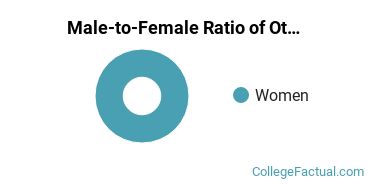Pennsylvania State University - Harrisburg Master’s in Other Teacher Education & Professional Development, Specific Subject Areas
Other Teacher Education & Professional Development, Specific Subject Areas is a concentration offered under the teacher education subject specific major at Pennsylvania State University - Harrisburg. Here, you’ll find out more about the major master’s degree program in other teacher education and professional development, specific subject areas, including such details as the number of graduates, diversity of students, and more.
You can jump to any section of this page using the links below:
Featured schools near , edit
Rankings for the Penn State Harrisburg Master’s in Other Teacher Education & Professional Development, Specific Subject Areas
If you're having trouble deciding which school is a good match for you, you may want to check out College Factual's Best Other Teacher Education & Professional Development, Specific Subject Areas Master's Degree Schools ranking to see some of the great options that are available. This ranking takes a number of things into account when determining a school's overall quality. Ranking factors include student and faculty diversity, average graduate earnings, and average amount of student debt.
On the 2021 list, Penn State Harrisburg was ranked #188 out of 782 schools in the country for this major at the master's level. It is also ranked #12 in Pennsylvania.
How Much Does a Master’s in Other Teacher Education & Professional Development, Specific Subject Areas from Penn State Harrisburg Cost?
Penn State Harrisburg Graduate Tuition and Fees
In 2018-2019, the average part-time graduate tuition at Penn State Harrisburg was $1,197 per credit hour for out-of-state students. The average for in-state students was $908 per credit hour. The following table shows the average full-time tuition and fees for graduate student.
| In State | Out of State | |
|---|---|---|
| Tuition | $21,792 | $28,718 |
| Fees | $992 | $992 |
Does Penn State Harrisburg Offer an Online Master’s in Other Teacher Education & Professional Development, Specific Subject Areas?
Penn State Harrisburg does not offer an online option for its other teacher education and professional development, specific subject areas master’s degree program at this time. To see if the school offers distance learning options in other areas, visit the Penn State Harrisburg Online Learning page.
Penn State Harrisburg Master’s Student Diversity for Other Teacher Education & Professional Development, Specific Subject Areas
Male-to-Female Ratio
Of the students who received their master’s degree in other teacher education and professional development, specific subject areas in 2018-2019, all of them were women.

Racial-Ethnic Diversity
Around 44.4% of other teacher education and professional development, specific subject areas master’s degree recipients at Penn State Harrisburg in 2018-2019 were awarded to racial-ethnic minorities*. This is higher than the nationwide number of 23%.

| Race/Ethnicity | Number of Students |
|---|---|
| Asian | 1 |
| Black or African American | 1 |
| Hispanic or Latino | 1 |
| Native American or Alaska Native | 0 |
| Native Hawaiian or Pacific Islander | 0 |
| White | 3 |
| International Students | 2 |
| Other Races/Ethnicities | 1 |
Majors Related to a Master’s in Other Teacher Education & Professional Development, Specific Subject Areas From Penn State Harrisburg
You may also be interested in one of these majors related to other teacher education and professional development, specific subject areas.
| Related Major | Annual Graduates |
|---|---|
| Health Education | 4 |
| Reading Teacher Education | 9 |
View All Other Teacher Education & Professional Development, Specific Subject Areas Related Majors >
References
*The racial-ethnic minorities count is calculated by taking the total number of students and subtracting white students, international students, and students whose race/ethnicity was unknown. This number is then divided by the total number of students at the school to obtain the racial-ethnic minorities percentage.
More about our data sources and methodologies.


